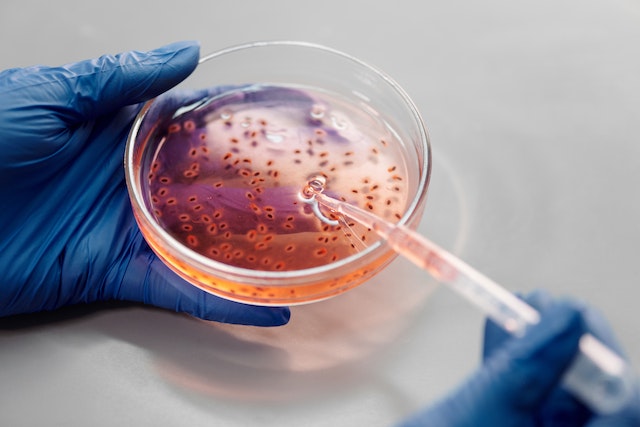
How long do viruses and bacteria live for? It depends on the virus and the bacteria. Also, bacteria are alive, but viruses are not alive.
In order for something to be considered alive, it has to meet certain characteristics. It has to have specialized parts that are coordinated. It has to metabolize something to make energy and it must use that energy to do something. It must be able to regulate its own temperature (homeostasis). It must be able to grow and to reproduce. It must be able to respond to stimuli. Bacteria meet all of these requirements, but viruses don’t. Bacteria are single-cell organisms, but they are made up of complex structures that all work together for the bacteria to function. Viruses are very simple structures. Viruses try to be as simple as possible. Bacteria metabolize the sugars or complex carbohydrates in things to produce energy. This is one of the reasons why they are vital in the world. Viruses have no metabolic system. They can not produce energy themselves and can only use the equipment in the cell they are invading to generate the parts they need to replicate themselves. Bacteria are able to chemically regulate their own temperature, viruses cannot. Bacteria can reproduce by binary fission, which is where the cell makes a copy of its DNA, then splits into two halves that go on to become two new bacteria. Viruses cannot reproduce themselves. The only thing they can do is to make a host cell reproduce for them. Lastly, bacteria can react to stimuli and move. Viruses cannot.
So, how long do viruses and bacteria live for? Let’s look at viruses first. As we have learned, viruses are not technically alive, so a better question would be how long a virus is capable of invading another cell. A virus contains nucleic acids, proteins, glycoproteins, fats, and water molecules. They need the proteins to attach to and then get into a cell. Once inside the cell, they break open their casing and release their DNA, which starts the host cell replicating the virus. These new viruses are capable of invading any other cell. They can remain in the body indefinitely, unless they are destroyed. Some viruses can become dormant in the host and stay for a long time before they switch on and start to replicate themselves. Viruses do not age because they are not alive and if they are not destroyed, they could last for a very long time. However, this usually doesn’t happen because a virus can be killed or rendered ineffective in several ways. The first way is by messing up the proteins, or nucleic acids inside the virus. If these are not in exactly the right form or position, the virus cannot replicate itself. Heat can do this, which is why the body creates a fever when we are sick. The second way, also with heat, is to evaporate the water molecules inside the virus. If it dries out, it cannot replicate itself. The third way is to break the case that the stores everything the virus needs. This case is made from fats, usually, and can be broken open in many ways, one of which is soap. If you wash your hands, the soap will rip the virus open. All of this means a virus will last indefinitely as long as it is protected inside a safe host. Once out of the host, or if faced with heat, or even soap, the virus cannot last for long.
Now, let’s look at bacteria. This is a pretty difficult question to answer because there are two ways of looking at it. Bacteria are alive, but they don’t age. They could theoretically live for eons and bacteria that are over 250 million years old have been successfully revived. However, they reproduce by binary fission, which means they divide themselves into two. In the beginning there is one bacterium, which becomes 2, then 4, then 8, and so on. Each time the bacteria reproduces, the original bacterium is not dying. Does that mean that the original bacterium is immortal, or that it lives as long as all of the bacteria it becomes survive? The other way of looking at the question is the exact opposite. Bacteria divide about every 12 hours, so you could say that a bacterium only lives for 12 hours. Just like viruses, there are many ways to shorten the life of a bacterium as well. Heat, acid, bleach, alcohol, soap, and, of course, antibiotics like penicillin will all kill bacteria. And this is what I learned today.
Photo by Edward Jenner: https://www.pexels.com/photo/person-using-a-pipette-4031442/
Sources
https://www.khanacademy.org/science/biology/intro-to-biology/what-is-biology/a/what-is-life
https://www.merriam-webster.com/grammar/virus-vs-bacteria-difference
https://pubmed.ncbi.nlm.nih.gov/19573695/
https://imb.uq.edu.au/article/2020/04/difference-between-bacteria-and-viruses
https://micro.magnet.fsu.edu/cells/bacteriacell.html
https://www.news-medical.net/health/How-does-Viral-Replication-Work.aspx
https://microbiologysociety.org/why-microbiology-matters/what-is-microbiology/bacteria.html
https://news.ncsu.edu/2020/05/how-long-can-viruses-survive/
https://www.sciencefocus.com/nature/how-long-does-a-bacterium-live
https://www.sciencedaily.com/releases/2011/10/111027150207.htm
